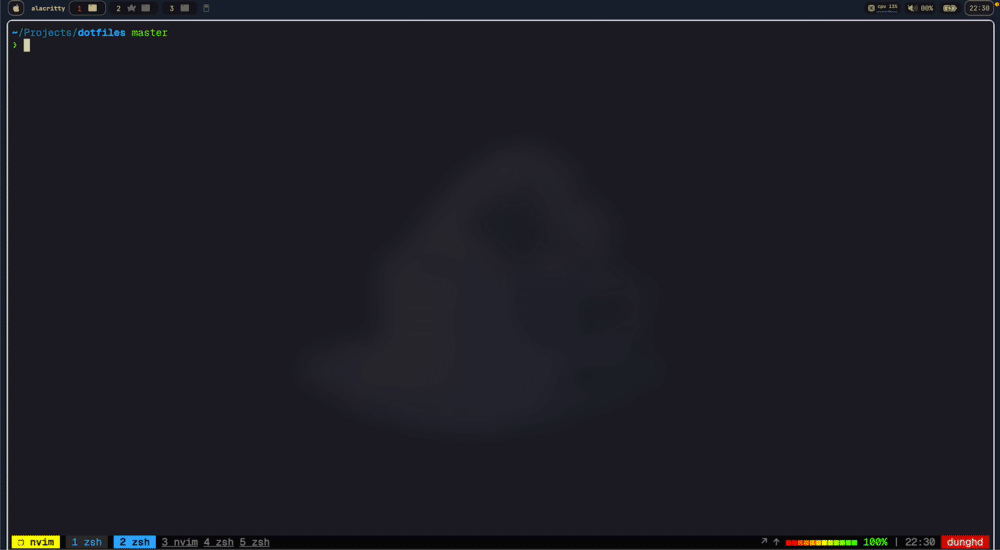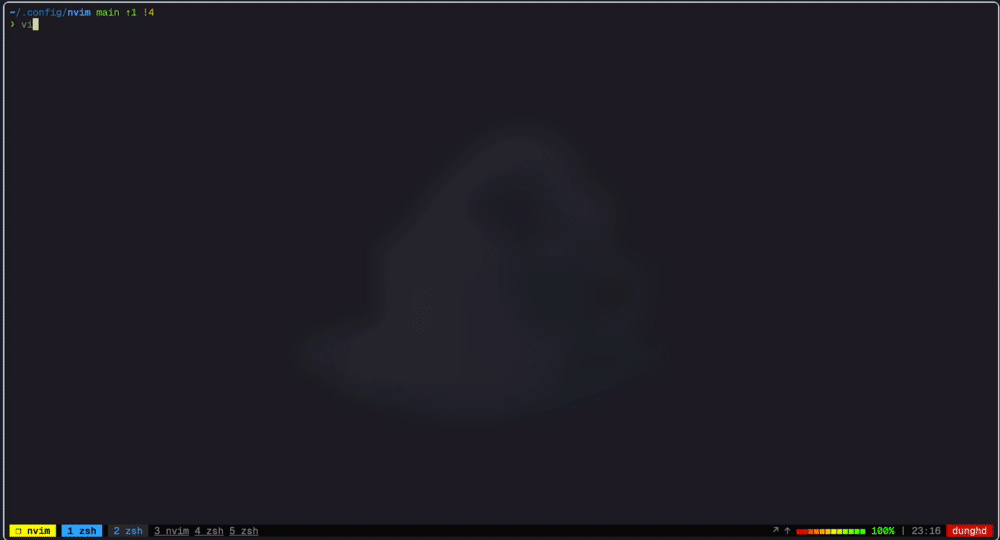C-Spell setup in Neovim: A comprehensive guide

Introduction
After switching to Neovim as my main IDE two years ago, I immediately noticed the absence of a tool I had relied on in Visual Studio Code: streetsidesoftware/vscode-spell-checker. This powerful extension was invaluable for catching typos in my code. Consequently, I wanted to develop a similar tool for my Neovim setup.
Cspell-tool
https://github.com/jellydn/cspell-tool
This side project has helped me streamline the setup of cspell in any project. It scans the folder and lists all the unknown words in a text file. Naturally, you would review the results and remove the invalid words. I believe there is a demand for this among other Neovim users, so the README serves not only as documentation for the open-source tool but also as a guide for anyone using the null-ls.nvim plugin.
What is the new setup?
As null-ls has been deprecated, I have migrated my setup to nvim-lintwhich is an asynchronous linter plugin.
null-ls is now archived and will no longer receive updates. Please see this issue for details.
Initialize Config with cspell-tool
Run the following command in your working project:
npx cspell-tool@latest
Install cspell with mason and linting with nvim-lint
I'm using lazy.nvim, so my configuration looks like this:
--- plugins/cspell.lua
return {
--- Install cspell with mason
{
"williamboman/mason.nvim",
opts = {
ensure_installed = {
"cspell",
},
},
},
-- Lint file
{
"mfussenegger/nvim-lint",
event = "VeryLazy",
opts = {
linters_by_ft = {
["*"] = { "cspell", "codespell" }, -- Install with: pip install codespell
},
},
config = function(_, opts)
local lint = require("lint")
lint.linters_by_ft = opts.linters_by_ft
vim.api.nvim_create_autocmd({ "BufWritePost", "BufReadPost", "InsertLeave" }, {
callback = function()
local names = lint._resolve_linter_by_ft(vim.bo.filetype)
-- Create a copy of the names table to avoid modifying the original.
names = vim.list_extend({}, names)
-- Add fallback linters.
if #names == 0 then
vim.list_extend(names, lint.linters_by_ft["_"] or {})
end
-- Add global linters.
vim.list_extend(names, lint.linters_by_ft["*"] or {})
-- Run linters.
if #names > 0 then
-- Check if the linter is available, otherwise it will throw an error.
for _, name in ipairs(names) do
local cmd = vim.fn.executable(name)
if cmd == 0 then
vim.notify("Linter " .. name .. " is not available", vim.log.levels.INFO)
return
else
-- Run the linter
lint.try_lint(name)
end
end
end
end,
})
end,
},
}
Code Action
We will create small helpers to detect the project root and initialize the cspell.json file if it does not exist.
utils/path.lua
local M = {}
--- Check if the current directory is a git repo
---@return boolean
function M.is_git_repo()
vim.fn.system("git rev-parse --is-inside-work-tree")
return vim.v.shell_error == 0
end
--- Get the root directory of the git project
---@return string|nil
function M.get_git_root()
return vim.fn.systemlist("git rev-parse --show-toplevel")[1]
end
--- Get the root directory of the git project or fallback to the current directory
---@return string|nil
function M.get_root_directory()
if M.is_git_repo() then
return M.get_git_root()
end
return vim.fn.getcwd()
end
return M
utils/cspell.lua
local Path = require("utils.path")
local M = {}
function M.create_cspell_json_if_not_exist()
local cspell_json_path = Path.get_root_directory() .. "/cspell.json"
if vim.fn.filereadable(cspell_json_path) == 0 then
local file = io.open(cspell_json_path, "w")
if file then
local default_content = [[
{
"$schema": "https://raw.githubusercontent.com/streetsidesoftware/cspell/main/cspell.schema.json",
"version": "0.2",
"language": "en",
"globRoot": ".",
"dictionaryDefinitions": [
{
"name": "cspell-tool",
"path": "./cspell-tool.txt",
"addWords": true
}
],
"dictionaries": [
"cspell-tool"
],
"ignorePaths": [
"node_modules",
"dist",
"build",
"/cspell-tool.txt"
]
}
]]
file:write(default_content)
file:close()
else
vim.notify("Could not create cSpell.json", vim.log.levels.WARN, { title = "cSpell" })
end
end
end
-- Add unknown word under cursor to dictionary
function M.add_word_to_c_spell_dictionary()
local word = vim.fn.expand("<cword>")
-- Show popup to confirm the action
local confirm = vim.fn.confirm("Add '" .. word .. "' to cSpell dictionary?", "&Yes\n&No", 2)
if confirm ~= 1 then
M.add_word_from_diagnostics_to_c_spell_dictionary()
return
end
M.create_cspell_json_if_not_exist()
local dictionary_path = Path.get_root_directory() .. "/cspell-tool.txt"
-- Append the word to the dictionary file
local file = io.open(dictionary_path, "a")
if file then
-- Detect new line at the end of the file or not
local last_char = file:seek("end", -1)
if last_char ~= nil and last_char ~= "\n" then
word = "\n" .. word
end
file:write(word .. "")
file:close()
-- Reload buffer to update the dictionary
vim.cmd("e!")
else
vim.notify("Could not open cSpell dictionary", vim.log.levels.WARN, { title = "cSpell" })
end
end
-- Add unknown word from cspell diagnostics source to dictionary
function M.add_word_from_diagnostics_to_c_spell_dictionary()
-- Get diagnostics source and only get from cspell
local bufnr = vim.api.nvim_get_current_buf()
local winnr = vim.api.nvim_get_current_win()
local cursor = vim.api.nvim_win_get_cursor(winnr)
local diagnostics = vim.lsp.diagnostic.get_line_diagnostics(bufnr, cursor[1] - 1)
local cspell_diagnostics = {}
for _, diagnostic in ipairs(diagnostics) do
if diagnostic.source == "cspell" then
table.insert(cspell_diagnostics, diagnostic)
end
end
-- Get the first word from the first cspell diagnostic
-- E.g. "Unknown word ( word )"
local word = cspell_diagnostics[1].message:match("%((.+)%)")
if word == nil then
vim.notify("Could not find unknown word", vim.log.levels.WARN, { title = "cSpell" })
return
end
-- Show popup to confirm the action
local confirm = vim.fn.confirm("Add '" .. word .. "' to cSpell dictionary?", "&Yes\n&No", 2)
if confirm ~= 1 then
return
end
M.create_cspell_json_if_not_exist()
local dictionary_path = Path.get_root_directory() .. "/cspell-tool.txt"
-- Append the word to the dictionary file
local file = io.open(dictionary_path, "a")
if file then
-- Detect new line at the end of the file or not
local last_char = file:seek("end", -1)
if last_char ~= nil and last_char ~= "\n" then
word = "\n" .. word
end
file:write(word .. "")
file:close()
-- Reload buffer to update the dictionary
vim.cmd("e!")
else
vim.notify("Could not open cSpell dictionary", vim.log.levels.WARN, { title = "cSpell" })
end
end
return M
Define a keymap to add unknown words to the dictionary:
vim.keymap.set(
"n",
"<leader>us",
"<cmd>lua require('utils.cspell').add_word_to_c_spell_dictionary()<CR>",
{ noremap = true, silent = true, desc = "Add unknown word to cspell dictionary" }
)
Demo
Conclusion
Hope you enjoy this setup. You can find all the code in my Neovim config: https://github.com/jellydn/my-nvim-ide. Let me know if you have any comments or thoughts on my approach.
 ITMan's Blog - 📚 Lifelong Learner
ITMan's Blog - 📚 Lifelong Learner
